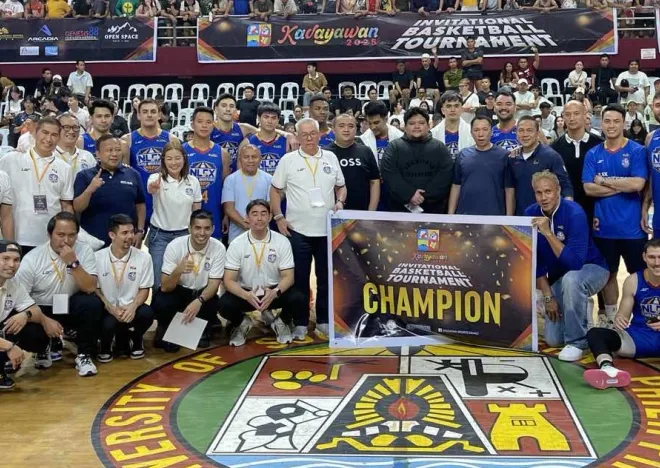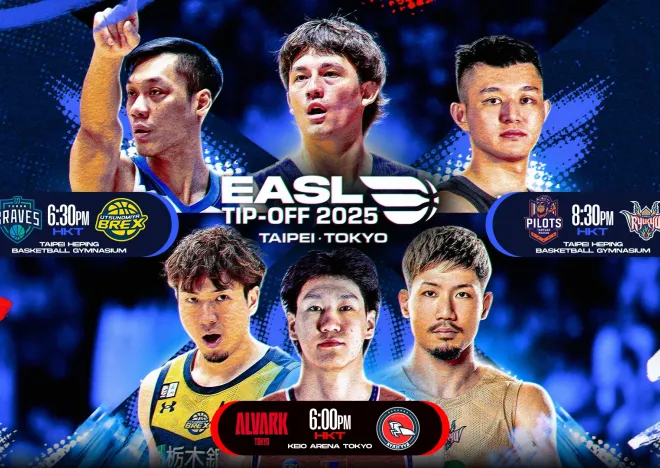Player Profile Series: The Great “El Presidente” Ramon Fernandez

In the continuation of our Profile Series, we shine the spotlight on the first-ever four-time Most Valuable Player in the Philippine Basketball Association — and arguably the league’s greatest of all time — the legendary “El Presidente,” Ramon Fernandez.
Known for his elegant hook shot and unparalleled court vision, Fernandez took the league by storm with MVP wins in 1982, 1984, 1986, and 1988. Beyond individual accolades, he secured 19 championship titles in an illustrious career that spanned two decades.
Born on October 3, 1953, in Maasin, Leyte, Fernandez stood 6-foot-4 and played the center/forward position, but his game defied traditional roles. With the ball-handling of a guard and the mind of a tactician, he was the prototype of the modern big man — long before the game evolved to demand it.
Fernandez began his basketball journey at the University of San Carlos in Cebu. In 1972, he played for the San Miguel Braves in the Manila Industrial and Commercial Athletic Association (MICAA), then moved to the newly formed Komatsu Komets, who later became the iconic Toyota Comets.
By 1975, Toyota had joined the PBA as one of its nine founding teams, and Fernandez quickly became one of the league’s brightest stars. Alongside Robert Jaworski and Francis Arnáiz, he led Toyota to nine championships between 1975 and 1983. His 1982 MVP was earned during this era, solidifying his status as the team’s anchor.
After Toyota disbanded in 1984, Fernandez joined Beer Hausen and claimed his second MVP that same year. But the headlines weren’t just about basketball — his growing rift with former teammate Jaworski became one of the PBA’s most talked-about rivalries. Still, Fernandez continued to shine on the court, even though his team never made it to the top.
A midseason trade in 1985 sent him to Tanduay in exchange for another elite big man, Abet Guidaben. Teaming up with veterans and talented imports, Fernandez led Tanduay to three championships and secured his third MVP in 1986.
When Tanduay disbanded before the 1988 season, Purefoods acquired the franchise. Fernandez served briefly as a playing coach, guiding a young core that included Jerry Codiñera, Jojo Lastimosa, and Alvin Patrimonio. He led the team to the finals in the 1988 Open Conference but eventually handed off coaching duties mid-season. A controversial benching in the All-Filipino Finals that year led to a blockbuster trade — Fernandez to San Miguel, in exchange once again for Guidaben.
With San Miguel, Fernandez found the perfect ending chapter to his career. He won the 1988 Reinforced Conference, earned his fourth MVP, and played a key role in the Beermen’s historic 1989 Grand Slam. That same year, in the All-Star Game, he and Jaworski finally buried the hatchet with a handshake at center court — a moment orchestrated by coach Baby Dalupan that symbolized closure and mutual respect.
Fernandez continued to represent the country on the international stage, including the 1990 Asian Games where the Philippines claimed silver. He retired in 1994, still a statistical juggernaut:
- Most points: 18,996
- Most rebounds: 8,652
- Most blocks: 1,853
- Most minutes played: 36,624
- Second in assists: 5,220
- Second in games played: over 1,070
He came just five assists shy of averaging a triple-double in the 1984 season. His career averages — 17.7 points, 8.1 rebounds, 4.9 assists, 1.2 steals, and 1.7 blocks per game — speak volumes about his versatility.
Ramon Fernandez wasn’t just a statistical marvel. He was a cerebral giant, a team-first superstar, and a player who turned every franchise he touched into a contender. For many, he remains the standard by which greatness in Philippine basketball is measured.
“El Presidente” wasn’t just a nickname. It was a title he earned — through elegance, excellence, and an enduring legacy.
Name: Ramon Fernandez
Nickname: Mon
Birthdate: October 3, 1953
Hometown: Maasin, Leyte
Moniker: El Presidente, Don Ramon
Jersey No’s: 10/19
Don Ramon’s teams
As a player:
1972 - San Miguel Corporation Braves
1973–1984 - Toyota
1984–1985 - Beer Hausen/Manila Beer
1985–1987 - Tanduay Rhum Makers
1988 - Purefoods Hotdogs
1988–1994 - San Miguel Beermen
As a coach:
1988 - Purefoods Hotdogs
Achievements:
- 19× PBA champion (1975 First, 1975 Second, 1977 Invitational, 1978 All-Filipino, 1978 Invitational, 1979 Invitational, 1981 Open, 1982 Reinforced Filipino, 1982 Open, 1986 Reinforced, 1986 All-Filipino, 1987 Open, 1988 Reinforced, 1989 Open, 1989 All-Filipino, 1989 Reinforced, 1992 All-Filipino, 1993 Governors', 1994 All-Filipino)
- 5× PBA All-Star (1989, 1990, 1991, 1993, 1994)
- 4× PBA Most Valuable Player (1982, 1984, 1986, 1988)
- 13× PBA Mythical First Team (1976–1982, 1984, 1986, 1988, 1989, 1991, 1992)
- 3× PBA Mythical Second Team (1985, 1987, 1990)
- 2× PBA scoring champion (1983–1984)
- PBA All-Time Scoring Leader
- 50 Greatest Players in PBA History (2000 selection)
- PBA Hall of Fame Class of 2005
- No. 19 retired by the San Miguel Beermen
International stints:
FIBA Asia Under-18 Championship
- Gold medal – first place (1972 Manila)
FIBA Asia Championship
- Gold medal – first place (1973 Manila)
Asian Games
- Silver medal – second place (1990 Beijing)
Similar news
The NLEX Road Warriors wrapped up their preseason on a high note, clinching the 40th Kadayawan Invitational championship with a commanding 101-84 victory over the Blackwater Bossing on Sunday night, August 26, at the University of Southern Philippines in Davao City.
It wasn’t the smoothest of starts for NLEX, which found itself down by 11 early in the game. But the tide shifted in the second quarter, where the Road Warriors erupted for a 34-12 run behind the efforts of Robert Bolick, Dominic Fajardo, Tony Semerad, and Xyrus Torres to seize a 52-36 halftime lead.
Blackwater attempted a late push, cutting the gap to 76-65 in the fourth quarter, but NLEX responded with a 12-5 counter that put the game out of reach. Semerad, who buried three triples in the payoff period, earned Finals MVP honors with 16 points and 12 rebounds. Torres topped the scoring for NLEX with 19 markers, while Bolick came close to a triple-double with eight points, six boards, and nine assists. JB Bahio and Fajardo chipped in 12 and 10 markers, respectively. As a team, the Road Warriors torched the net from beyond the arc, going 18-of-34, with Semerad and Torres sinking four each.
Sedrick Barefield paced Blackwater with 15 points, while Richard Escoto added 14. The Bossing, despite falling short in the finals, had an impressive run in the preliminaries, including a comeback win over NLEX, 95-90, earlier in the tournament.
The championship serves as a timely boost for NLEX heading into the new PBA season. Last year, the Road Warriors finished second in the Philippine Cup eliminations before bowing out in the quarterfinals against Rain or Shine. Deputy mentor Adonis Tierra called the shots in their last two games, steering the team to become the second straight PBA squad to lift the Kadayawan crown, following Rain or Shine’s sweep in 2024. NLEX closed the tournament with a 3-1 card, their lone loss coming at the hands of Blackwater.
In the battle for third place, Phoenix avoided a winless campaign with a convincing 101-81 rout of Converge. Raffy Verano led the way with 19 points and nine rebounds, while Tyler Tio and Kai Ballungay contributed 17 and 15 markers, respectively. The win marked the first for new head coach Willy Wilson, who took over during the offseason. Coincidentally, Phoenix also defeated Converge for third place in last year’s edition of the tournament.
The NLEX Road Warriors and Blackwater Bossing opened their campaigns in the 2025 Kadayawan Invitational with victories in their respective first games on Thursday, August 21, at the USEP Gym in Davao City.
In the first game, Sedrick Barefield made an immediate impact for the Bossing. The 2024 second overall pick erupted for 28 points, including six triples. Three of those came in succession in the fourth quarter, turning a slim 72-66 lead into a more comfortable 81-68 cushion.
Troy Mallillin contributed 17 points and six rebounds, while newcomer Jed Mendoza impressed in his debut with 16 points.
For the Phoenix Fuel Masters, Jason Perkins and Kai Ballungay scored 12 points apiece in their first game under new head coach Willie Wilson, who took over from Jamike Jarin after he was moved to a team consultant role.
The East Asia Super League (EASL) is officially set to raise the curtain on its new season with a twin opening in Taipei and Tokyo on October 8, 2025 — a move that reflects the league’s expanding reach and growing stature as Asia’s premier basketball competition.
All eyes in Taiwan will be on the Taipei Heping Basketball Gymnasium, which will host a blockbuster doubleheader featuring some of the region’s most decorated clubs.
The action tips off with a clash between the B.LEAGUE champions Utsunomiya Brex and the P. LEAGUE+ runners-up Taipei Fubon Braves. Utsunomiya, led by veteran guard Makoto Hiejima, entered as one of Japan’s most successful franchises. The Braves, meanwhile, look to prove their resilience after falling short in a grueling seven-game finals series last season, banking on the leadership of Chinese Taipei legend Lin Chih-Chieh.
The second game of the night brings a rematch between the P. LEAGUE+ champions Taoyuan Pauian Pilots and Japan’s Ryukyu Golden Kings. Their last encounter came in the 2025 EASL Final Four semifinals, where Taoyuan stunned Ryukyu, 71–64. This time, the Golden Kings are eager for redemption, while the Pilots hope to reaffirm their place among Asia’s elite.
Game schedule (HKT):
- Utsunomiya vs. Taipei Fubon – 6:30 PM
- Taoyuan vs. Ryukyu – 8:30 PM



